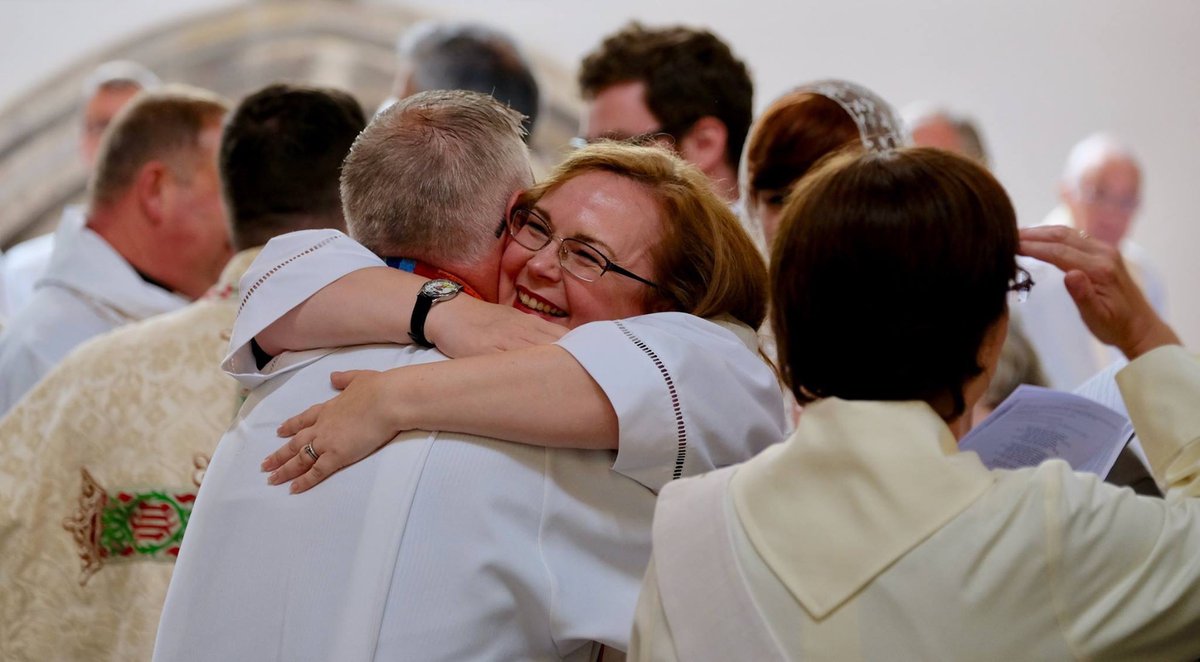Explore a Calling

‘’God has created each of us with a unique purpose and calls us to become the fullest version of ourselves through God’s love. As members of the Body of Christ, we serve God by serving others, living out our vocation so that God’s presence may be known in the world. Just as Jesus called His disciples to follow Him and share in His ministry, I encourage you to listen to the calling that is within all of us and explore the vocation God has placed in your heart; ‘do not be afraid’.’’The Right Reverend Mary Stallard Bishop of Llandaff
In this section:
What is Vocation?
We all have a vocation as Christians to proclaim the gospel and make God’s love known to all.
However, we each also have different abilities, gifts and talents that enable us fulfill different ministries in the church. Everyone has a distinct vocation – a calling.
The following video gives a helpful summary of Christian vocation:
The picture that we have in Scripture is that all Christians play an integral role in God’s plans in this world and as we pay particular attention in our prayers we can get a better sense of being affirmed and blessed in our everyday life. It is a natural part of being a disciple of Jesus to explore this calling to be fruitful in God’s Kingdom where we are. All sorts of aspects of our life can be understood as being ways through which God uses us to bless others: the community in which we live, our household and relationships, our work and leisure, projects that we support and ideals that are important to us. The marvellous fact is that God uses us ‘as we are’ and it is possible to unlock untapped spiritual potential within us when we recognise and seek God’s direction over our everyday calling.
Many people extend the sense of vocation into the mission and life of church, exercising full and active ministries such as churchwardens, church treasurers, those who read and lead prayers, flower arrangers, those who welcome and offer hospitality, working in children and youth group, bereavement support, foodbank volunteers, administration and many more. Being involved in these ways can often come from a sense of inner conviction and that this is a role for me in church, whilst for others they find themselves in the role because the job needs doing and they are the best fit. Whatever led us into these roles, reflecting on them as our vocation can transform us and the capacity for good that they can bring about.
Certain roles in church require greater levels of discernment and training before a person can begin to exercise them. These are licensed by the diocesan bishop and are usually referred to as ‘licensed ministries’ such as ordained ministries, reader ministry, lay pastoral visitors and lay pioneer ministry into areas to build up church in new ways. When someone recognises a sense that God is calling them to consider a vocation like these then the diocese will want to dedicate support for that person to discover where this might be leading.
Explore your vocation
It is always a joy to know that people are recognising a sense of a calling. This might express itself as feelings inside, prompting from prayer and worship, encouraging words from other people, a culmination of a process that has been going on in the background for sometime, or a desire to try something new…
A good place to start might be your local congregation and local priest or church leadership team who should know you well enough to suggest ways forward.
You can also contact the vocations team who are people in the diocese from different backgrounds, here to support anyone wanting to find out more about God drawing them into something new in their spiritual life.
Please contact Diocesan Director of Ordinands, Rev'd Ian Hodges - ianhodges@churchinwales.org.uk
Take the next step
Start your journey of discernment today! Please contact Diocesan Director of Ordinands, Rev'd Ian Hodges - ianhodges@churchinwales.org.uk
Types of licensed ministry
Llandaff diocese recognises different licensed ministries and can support training in these areas through St Padarn’s Institute based in Cardiff (residential and home-based learning).
Ordained Ministry – Deacons and Priests
Deacon – Within the ministry entrusted by Christ to his Church, deacons are called to assist the bishop and priests and through loving service, to make Christ known by word and example.
Priest – Priests are called to work with the bishop to sanctify, to teach and to exercise oversight within the community of faith.
Please contact Diocesan Director of Ordinands, Rev'd Ian Hodges - ianhodges@churchinwales.org.uk
Pastoral Ministry
Pastoral Ministers are called to focus and enable pastoral practice within the local church and should be rooted in its collaborative working practice.
Reader Ministry
Readers are called by God to be examples of those who are bearers and interpreters of the Word. This will include leading public worship, preaching and teaching the Word. Their call is to read and interpret the story of God and God’s mission to the world through Bible and history and also to read and interpret the world and the community within which they are being called into ministry. With suitable discernment and training, Readers may also exercise a pastoral ministry.
Evangelist
Evangelists are called to reach out to those with little or no faith and offer them the love of God in word and action and try to draw them into the fellowship of the church. They share many characteristics with Pioneers but differ in that pioneers primarily seek to create communities and churches, evangelists primarily seek to draw people to Christ using the resources of pre-existing communities and churches. Contact the Church Army Home - Church Army
Further resources
Vocations Blog
Take a look at our blog to be inspired and encouraged by other's experience of responding to God's call.